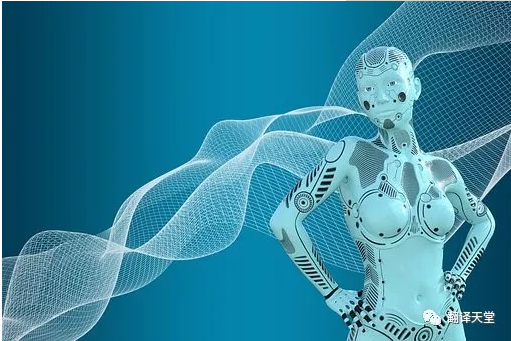Why the Fourth Industrial Revolution needs more arts graduates 为什么第四次工业革命需要更多文科人才?

有强烈的迹象表明,在互联网工作环境中,雇主已经认识到雇佣多技能人才十分重要。
The cybersecurity industry is facing a jobs crisis. According to recent estimates, India alone requires an additional two million cybersecurity professionals in the next two years. Some put the global estimate as high as 3.5 million by 2022.
网络安全行业正面临人才匮乏的危机。据估计,在未来两年中,仅印度网络安全职业人员缺口将达到200万人;到2022年,全球人才缺口将高达350万人。
Salaries are tracking these demands, with graduate level analyst positions in the US touching $100,000 per annum, the highest of any profession.
随着对网络安全人才需求不断加剧,岗位的薪水也水涨船高。在美国,本科毕业生从事分析师的年薪将达到10万美元,是其他职业所无可比拟的。
As the World Economic Forum’s Future of Jobs Report 2018 outlines, technological drivers are increasingly challenging traditional jobs and careers. Those that are charged with securing the digital revolution are scrambling for talent. Nearly every technologically advanced state in the world is working out how to fill a skills shortage.
世界经济论坛发布的《2018未来就业报告》指出,新的科学技术正在不断挑战传统的岗位与职场。网络安全、数字革命需要更多的相关人才。世界各大科技强国都在努力解决技术人才短缺的问题。
But it is just as glib to state that we need more “cyber” people as it would be to say we need more “medical” people.
然而,就像我们说需要更多“医疗”人才一样,我们需要更多的“网络”人才这样的说法是欠缺思考的。
With governments and corporations increasingly focused on building a STEM pipeline, they are potentially excluding those with the backgrounds and skill sets required to keep pace with ever-evolving changes in technology, and to maximize its benefits.
各国政府、各大公司越来越关注搭建“STEM学科管道”(STEM是科学Science,技术Technology,工程Engineering,数学Mathematics四门学科英文首字母的缩写)。为了最大化利益,拥有相应技能和背景、能够跟上科技更迭的步伐的人才越来越受到欢迎。
As the report highlights, the following four very human characteristics will be the most important in the cyber arena, and in the wider Fourth Industrial Revolution.
报告强调,以下四个特质对于网络领域以及第四次工业革命来说最为重要。
1. Creativity
创造力

Cybersecurity is quickly becoming one of the most important industries for artificial intelligence, automation and machine learning technology.
网络安全很快就会成为人工智能、自动化以及机器学习技术等产业最为重要的问题之一。
Analyzing and defending against attacks is still a relatively manual process, akin to a Victorian factory model.
面对网络攻击,目前我们还大多采用人工分析、防御的方式应对,仿佛维多利亚时期的工业模式。
Any security operations centre has a long list of processes and actions which it is seeking to automate, and ultimately make redundant. This is a good thing - jobs, not people, need to change.
很多安全操作中心都有着一长串指令、操作列表,有待自动化运作,这使得整个流程十分冗杂。然而,这并不一定是坏事:这意味着相应的岗位,而非人,需要改变。
Freeing up resources so people can spend more effort creatively deploying new technologies and thinking of new security use cases, and new ways of detecting, investigating and attributing threats, is where skills will be most needed.
解放资源,我们就能够把更多的注意力放在创造力之上:开发新的科学技术、新的检测、调查、应对威胁的方式,并将其用于新的网络安全案例之中——这些技能正是我们最为需要的。
2. Problem-solving
解决问题

The most difficult global challenges in cybersecurity today consist of navigating the increasingly complex regulatory and legal environment, while promoting optimum conditions for innovation and cross-border collaboration against threats.
目前,网络安全领域最为艰难的全球性挑战,在于如何应对日益复杂的监管和法律环境,如何为技术创新、跨国合作应对网络威胁营造更好的空间。
At the recent Annual Gathering of the World Economic Forum’s Centre for Cybersecurity, topics addressed involved challenging policy coordination, and blocks to international collaboration as a result of a lack of regulatory consistency.
最近,在世界经济论坛网络安全中心的年会上,大家讨论了很多相关话题,如政策合作十分具有挑战性,以及由于各国监管欠缺协调,导致国际合作止步不前。
Cyber professionals increasingly need to be alive to, and be able to navigate, a much broader set of issues than simply technical ones. These include enabling international governments to adopt standards for the collection and sharing of e-evidence which can be used in court; navigating complex data protection rules; and tackling broader geopolitical questions relating to different approaches to cyberspace across the world.
网络安全人员越来越需要学会处理纯粹技术问题之外的其他一系列问题,包括助力各国政府采用一系列有关收集、分享可供法庭使用的电子证据的标准、熟练掌握复杂的数据保护规定并解决与全球网络安全相关的一系列地缘政治问题。
3. Leadership and people management
领导力及人力资源管理

Cyber leaders of the future will face a tough challenge. They must balance an understanding of increasingly complex technical systems, and how they and their users interact with them, with the management of an increasingly diverse global workforce operating in local markets and cultures.
未来的网络领袖将会面对极为艰难的挑战。他们必须在二者之间找到平衡:一方面,他们需要理解愈发复杂的技术系统,了解自身以及用户应当如何与系统互动;另一方面,他们需要学会在本地市场和本国文化之中管理日益多元化的劳动力。因此,掌握多元化技能的人才极为紧缺。
This will be made up of people who possess a hugely various range of skills and aptitudes, from those who manage the technical deployment of new types of infrastructure and analytics to those who pave the way in the development of complex regulation and new government partnerships.
他们能够管理、分析新型基础设施,为复杂的监管系统以及新型政府合作铺平道路。
Cybersecurity managers will need to support ways of working that get the best out their technical staff, while engaging across multiple levels in their business, as security becomes more integrated across entire organizations.
网络安全管理者需要在工作上帮助技术员工,让他们发挥自身的最大潜力。此外,随着网络安全越来越成为贯穿整个机构的问题,网络安全管理者还需要与公司中不同层级的人交流。
4. Critical thinking
4.批判思维

Investigation of cybercrime is difficult. New systems and technologies, such as offensive artificial intelligence, will make it even harder.
想要调查网络犯罪并非易事。新系统、新科技,如攻击性人工智能将会使其更加困难。
Attribution and prosecution remain the critical gap in building effective deterrence models.
想要构建有效的威慑模型,定罪和起诉之间仍然存在不可逾越的鸿沟。
In the UK last year, over 50% of all recorded crime was internet-enabled, but there were less than 50 prosecutions under the Computer Misuse Act.
去年,在英国,超过50%的犯罪是直接或间接通过互联网实施的,但只有50起案例发展到了起诉阶段(根据《计算机滥用法》)。
Being able to think critically about how criminals will use new technical systems to conduct attacks, and therefore what partnerships and analytics are needed to be able to defend against and ultimately prosecute them, will require a distinctly human approach.
想要弄清楚犯罪者是如何利用新的技术系统完成攻击并了解何种合作伙伴以及分析专家能够有效地防御攻击并最终顺藤摸瓜找到犯罪者、完成起诉,我们需要找到新的方法。
More work to do
前路漫漫

While cybersecurity will require technical awareness and hard skills, we should embrace the fact that technological developments will mean that a number of the more ‘process-related’ technical jobs will become obsolete.
尽管网络安全需要科技意识以及相关技能,但我们应该认识到,技术发展会使得一大批“与过程相关”的技术工作绝迹。
Instead, a premium will be placed on the need for ‘human’ skills to help us address new challenges and approach them in ways machines simply cannot.
取而代之的,是“人类”技能。这些技能能够帮助我们不断应对新的挑战——这是机器所无法完成的。
Ultimately, we need to harness technological advances in order to support a more creative response to some of the most complex issues facing the world today.
最终,我们需要利用技术进步,为我们的世界所面对的最为复杂的问题提供更富有创造性的解决方案。
There are strong signs that employers are realizing the need for broader skill sets in the cyber workplace.
有强烈的迹象表明,在互联网工作环境中,雇主已经认识到雇佣多技能人才十分重要。
For example, the recent GISW study found that 33% of cybersecurity executives came to the field from non-technical careers.
例如,最近GISW的一项研究表明,33%的网络安全负责人并非技术岗位出身。
However, there is still significant work to be done.
因此,还有很多事情需要完成。
A more diverse cyber workforce must be encouraged, particularly in relation to gender, and it must become easier for those with non-technical backgrounds to understand the significant impact they could have in this ever-expanding industry.
我们应当鼓励更加多元的网络工作环境,尤其是在性别相关的方面。不仅如此,非技术背景出身的雇员也应当能够理解日益蓬勃的网络产业的深远影响。
原文链接(达沃斯世界经济论坛):
https://www.weforum.org/agenda/2018/12/why-the-fourth-industrial-revolution-needs-more-arts-graduates/










